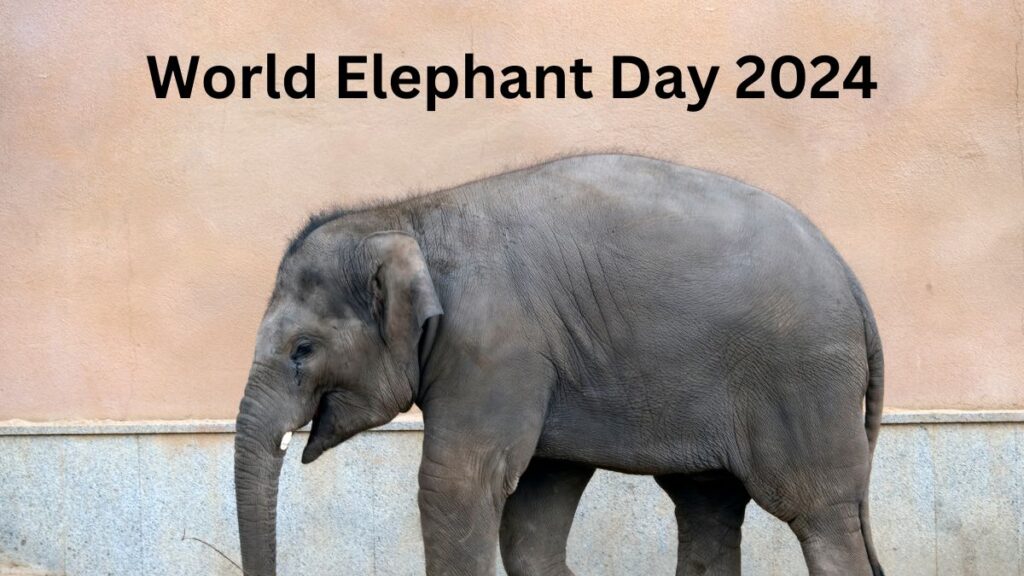World Elephant Day 2024
On 12th August 2024, the world came together to celebrate World Elephant Day, a day dedicated to raising awareness about the urgent need to protect elephants. These majestic creatures, revered for their intelligence and social bonds, face increasing threats from poaching, habitat loss, and human-wildlife conflict. This year, the message was clear: time is running out, and the world must act now to save elephants from extinction.
World Elephant Day, observed annually on 12th August, has grown into a global movement since its inception in 2012. The day aims to highlight the plight of elephants and encourage action to ensure their survival. In 2024, the theme focused on “Elephants and Their Ecosystems,” emphasizing the critical role these animals play in maintaining biodiversity and supporting healthy ecosystems.

The day began with a series of events, both online and in-person, hosted by conservation organizations, governments, and wildlife advocates. Across social media, the hashtag #WorldElephantDay trended globally, with millions of people sharing stories, photos, and messages of support for elephant conservation. In various countries, marches, fundraisers, and educational programs were held to bring attention to the issues elephants face.
In Africa, where the majority of the world’s elephants live, World Elephant Day was marked by a renewed commitment to anti-poaching efforts. Governments and NGOs highlighted the successes of various anti-poaching initiatives, such as increased patrols, the use of technology like drones and GPS tracking, and community-based conservation programs. Despite these efforts, the illegal ivory trade continues to pose a significant threat to elephant populations, particularly in countries where enforcement is weak.
In Asia, where both wild and captive elephants are found, the focus was on improving the welfare of elephants in captivity and protecting those in the wild from deforestation and habitat fragmentation. In India, home to the largest population of Asian elephants, conservationists used World Elephant Day to advocate for stronger protections for elephant corridors—narrow strips of land that connect fragmented habitats and allow elephants to move freely in search of food and mates.
One of the most pressing issues discussed on World Elephant Day 2024 was the impact of climate change on elephant habitats. As temperatures rise and rainfall patterns become more erratic, elephants are increasingly struggling to find water and food. This has led to more frequent encounters between elephants and humans, often resulting in tragic outcomes for both. Conservationists called for urgent action to address climate change and mitigate its effects on both elephants and the communities that share their habitats.
World Elephant Day also shined a light on the ethical treatment of elephants in captivity. In many parts of the world, elephants are used in tourism, logging, and entertainment, often under harsh and inhumane conditions. Advocacy groups used the day to campaign for the end of elephant riding and performances, and to promote responsible tourism that prioritizes the welfare of elephants. Sanctuaries and rescue centers around the world opened their doors to visitors, offering them a chance to learn about elephants and support their protection in more ethical ways.
The role of indigenous communities in elephant conservation was another key focus of World Elephant Day 2024. Indigenous people have lived alongside elephants for centuries and possess invaluable knowledge about these animals and their habitats. In several African and Asian countries, indigenous-led conservation initiatives have proven highly effective in protecting elephants while also benefiting local communities. On 12th August, several of these initiatives were celebrated, and calls were made to increase support for indigenous conservation efforts.
As the day drew to a close, conservationists and supporters around the world reflected on the progress that has been made, as well as the challenges that lie ahead. While there have been successes in some areas, the overall outlook for elephants remains dire. The African elephant population, once numbering in the millions, has been reduced to around 400,000. The situation is even more critical for Asian elephants, with fewer than 50,000 remaining in the wild.
World Elephant Day 2024 served as a reminder that saving elephants requires a global effort. From individual actions like supporting sustainable products and ethical tourism to large-scale initiatives like strengthening anti-poaching laws and protecting habitats, everyone has a role to play. The message from conservationists was clear: the future of elephants is in our hands, and we must act now before it is too late.
The events of 12th August 2024 highlighted the deep connection between elephants and the ecosystems they inhabit. Protecting elephants is not just about saving a species; it’s about preserving the balance of nature and ensuring that future generations can experience the wonder of these incredible animals. As the world faces increasing environmental challenges, the plight of elephants reminds us of the urgent need to protect our planet’s biodiversity.
In the years to come, the success of World Elephant Day will be measured not just by the awareness it raises, but by the concrete actions taken to ensure that elephants continue to roam the earth.


